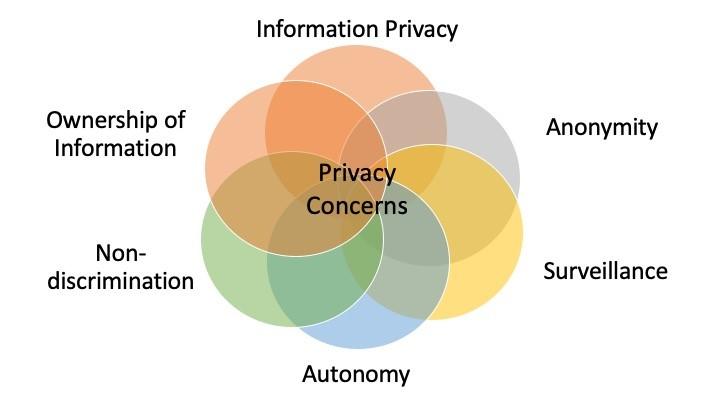Ethical considerations of AI in Education: Key Issues, challenges, and Solutions
Introduction: The Rise of AI in Education
Artificial Intelligence (AI) is rapidly transforming the world of education, enhancing personalized learning, streamlining administrative tasks, and creating engaging, adaptive learning environments. However, the adoption of AI-powered educational technologies raises crucial ethical questions. Understanding the ethical considerations of AI in education is vital for educators, policy-makers, students, and tech developers alike. This article dives deep into the key issues, challenges, and practical solutions associated with the responsible implementation of AI in the educational sector.
Key Ethical Issues of AI in Education
- Bias and Fairness: algorithms can inadvertently reinforce existing biases present in data, leading to unfair or discriminatory outcomes for certain student groups.
- Data Privacy and Security: AI in education often relies on large amounts of personal information. Protecting student data against breaches and inappropriate use is paramount.
- Transparency and Accountability: Understanding how AI systems make decisions, and who is accountable if something goes wrong, remains a major concern.
- Student Autonomy and Agency: there’s a risk that over-reliance on AI could undermine students’ ability to make autonomous choices about their learning journeys.
- Accessibility and Digital Equity: Not all students have equal access to AI-powered educational resources, potentially increasing the digital divide.
Real-World Case Studies: Ethical Dilemmas in Action
Case Study 1: Biased Grading Systems
In 2020, a national examination authority in the UK faced widespread outrage after students received algorithm-assigned grades, with many from disadvantaged backgrounds being unfairly downgraded. The incident highlighted the potential for AI bias in educational assessment and underlined the necessity of transparent, human oversight.
Case Study 2: Data Privacy in Learning Analytics
A leading edtech company was scrutinized when it was discovered that student performance data was being utilized for targeted advertising. this case sparked a debate about the ethical use of student data and the importance of robust, child-friendly data protection policies.
Challenges in Implementing Ethical AI in Education
- Lack of Clear Guidelines: The fast pace of technological innovation has outstripped the development of strong, universally accepted ethical standards for AI in education.
- Insufficient Teacher Training: Many educators feel ill-equipped to oversee, critique, or effectively use AI-driven tools due to a lack of training.
- Complexity of AI Systems: Black-box algorithms can be difficult for non-specialists to understand, making transparency and accountability harder to achieve.
- Resistance to Change: Stakeholders might potentially be skeptical or fearful about ceding control to AI, particularly in sensitive areas like testing or student monitoring.
benefits of AI in Education: Why Ethical Considerations Matter
When implemented ethically, AI in education offers powerful benefits such as:
- Personalized learning experiences tailored to individual student needs and pace.
- Early identification of at-risk learners for timely intervention and support.
- Reduced administrative burdens for educators, allowing more focus on teaching.
- Innovative, engaging educational content such as interactive simulations and adaptive testing.
By thoughtfully addressing ethical concerns, we can unlock AI’s full potential in education while safeguarding student rights and wellbeing.
Practical Solutions and Expert Tips for Ethical AI Integration
1. Develop and Adhere to Strong Ethical Frameworks
- Establish clear guidelines for data privacy, transparency, and fairness aligned with global standards like GDPR and UNESCO’s Ethics of AI in Education.
- Regularly audit AI tools and update protocols as technology evolves.
2. Involve All Stakeholders
- Engage educators, students, parents, and tech developers in conversations about ethical AI deployment.
- Encourage feedback loops and responsive adjustments to AI policies.
3. Prioritize transparency and Explainability
- choose AI solutions that provide clear explanations for how recommendations and decisions are made.
- Offer students and teachers insight into how AI-driven suggestions are generated.
4. Invest in Digital Literacy and Professional Development
- Create ongoing training programs for educators to increase AI literacy and ethical awareness.
- Teach students about the implications and limits of AI in their learning environments.
5. Empower Human Oversight
- Ensure AI applications in areas like assessment, discipline, or guidance always include a human-in-the-loop for final decisions.
- Review and correct AI-driven outputs regularly.
Fostering an Inclusive Future: AI in Education for All
Accessibility and inclusivity are core components of any ethical AI strategy in education. This means designing solutions that accommodate different languages,abilities,and socioeconomic contexts. Examples include:
- Adaptive learning platforms that adjust not only content but also interface for students with disabilities.
- Open Educational Resources (OER) powered by AI,ensuring wider,equitable access.
- Community-driven AI projects that reflect the diverse needs and values of local populations.
First-Hand Perspectives: Voices from the Classroom
“AI has allowed me to reach students I might otherwise struggle to connect with, but I always keep a close watch on how data is used and ensure students know how decisions are made.”
– Ms. Ana Roberts, High School Teacher
“As a student, I appreciate the personalized feedback, but it’s concerning when the AI gets something wrong or I don’t understand why it suggests certain courses. transparency is key.”
– James L., University Student
Conclusion: A Responsible Path Forward for AI in Education
The ethical considerations of AI in education are complex, evolving, and demand thoughtful attention.As artificial intelligence becomes increasingly woven into the fabric of learning, we must actively safeguard privacy, ensure fairness, promote inclusivity, and build robust safeguards for student autonomy. By fostering dialogue, investing in digital literacy, and upholding transparent, human-centered systems, the educational sector can harness AI’s immense benefits for all learners—responsibly and ethically.
staying proactively engaged with best practices and emerging guidelines will help educators, technologists, and policy-makers navigate the ethical landscape of AI in education with confidence and care.

